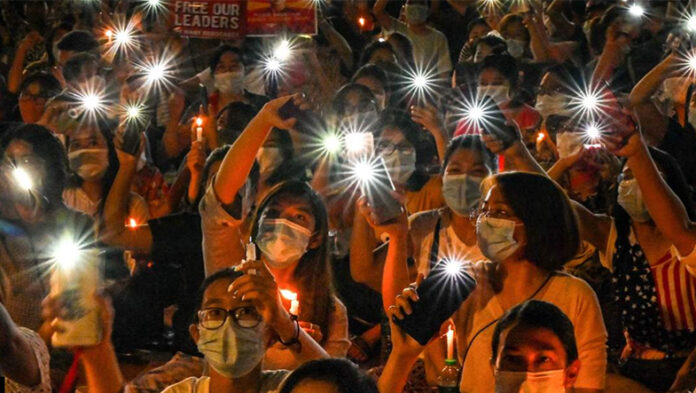Source: Amnesty International NZ
Responding to news of the arrest of five individuals from Myanmar, including three journalists from the Democratic Voice of Burma (DVB) news outlet, by the Thai authorities in Chiang Mai on 9 May, Amnesty International’s Deputy Regional Director for Campaigns, Ming Yu Hah, said:
“It is imperative that the Thai authorities do not forcibly return these individuals to Myanmar. To do so would place them at real risk of arbitrary arrest and detention, torture and other ill-treatment, and death.
“It would also put Thailand in breach of its obligations under the principle of non-refoulement under international law.
For years DVB has been a leading, outspoken outlet holding the authorities to account. If returned to Myanmar, these journalists will be at exceptionally grave risk.
“There have long been credible reports of torture and other ill-treatment in detention in Myanmar. These have intensified since the coup. Several people detained in recent weeks have died in detention in unexplained circumstances.
“For years DVB has been a leading, outspoken outlet holding the authorities to account. If returned to Myanmar, these journalists will be at exceptionally grave risk.
“Thailand has long played host to displaced and exiled communities from Myanmar. Whether they are targeted for their brave journalism work, escaping air strikes or evading other forms of attacks by the military, people in Myanmar are fleeing again today. We urge the Thai authorities to give sanctuary to those seeking safety, in line with international law.”
Background
According to a statement from DVB’s Editor-in-Chief, Aye Chan Naing, three senior DVB journalist and two activists were arrested by Thai police on Sunday 9 May in Chiang Mai (Thailand). They were reporting the anti-coup protests in Myanmar until 8 March, the day the military authorities revoked DVB’s TV license. Amnesty International has confirmed that the five are currently in police custody.
Since the military coup on 1 February, the Myanmar military has also revoked media licenses of several other media outlets and dozens of journalists are currently in arbitrary detention, facing charges or fearing arrest. Many more have gone into hiding.
Amnesty International opposes refoulement, which is prohibited under international law, in all cases without exception. Non-refoulement is an international legal principle that prohibits the transfer of individuals to another country or jurisdiction where they would face a real risk of serious human rights violations or abuses. It is part of customary international law, making it binding upon all states regardless of whether they ratified the relevant treaties.



